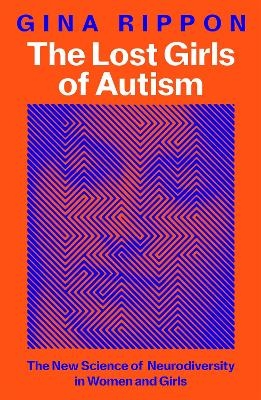
The Lost Girls of Autism
How Science Failed Autistic Women - and the New Research that's Changing the Story
Seiten
2025
MacMillan (Verlag)
978-1-0350-1163-6 (ISBN)
MacMillan (Verlag)
978-1-0350-1163-6 (ISBN)
- Noch nicht erschienen (ca. April 2025)
- Versandkostenfrei innerhalb Deutschlands
- Auch auf Rechnung
- Verfügbarkeit in der Filiale vor Ort prüfen
- Artikel merken
The first scientific exploration of neurodiversity in women and girls, and why it is being ignored across the world.
The history of autism is male. It is time for women and girls to enter the spotlight.
When autistic girls meet clinicians, they are often misdiagnosed with anxiety, depression, personality disorders, or are missed altogether. Autism’s ‘male spotlight’ means we are only now starting to redress this profound injustice.
In The Lost Girls of Autism, renowned brain scientist Gina Rippon delves into the emerging science of female autism, asking why it has been systematically ignored for so long. Generations of researchers, convinced autism was a male problem, simply didn’t bother looking for it in women. But it is now becoming increasingly clear that many autistic women and girls do not fit the traditional, male, model of autism. Instead, they camouflage and mask, hiding their autistic traits to accommodate a society that shuns them.
Urgent and insightful, this is a searching examination of how sexism has biased our understanding of autism. Informed by the latest research in psychology and neuroscience, The Lost Girls of Autism is a clarion call for society to recognize the full spectrum of autistic experience.
The history of autism is male. It is time for women and girls to enter the spotlight.
When autistic girls meet clinicians, they are often misdiagnosed with anxiety, depression, personality disorders, or are missed altogether. Autism’s ‘male spotlight’ means we are only now starting to redress this profound injustice.
In The Lost Girls of Autism, renowned brain scientist Gina Rippon delves into the emerging science of female autism, asking why it has been systematically ignored for so long. Generations of researchers, convinced autism was a male problem, simply didn’t bother looking for it in women. But it is now becoming increasingly clear that many autistic women and girls do not fit the traditional, male, model of autism. Instead, they camouflage and mask, hiding their autistic traits to accommodate a society that shuns them.
Urgent and insightful, this is a searching examination of how sexism has biased our understanding of autism. Informed by the latest research in psychology and neuroscience, The Lost Girls of Autism is a clarion call for society to recognize the full spectrum of autistic experience.
Gina Rippon is Emeritus Professor of Cognitive Neuroimaging at the Aston Brain Centre, Birmingham. Her research involves state-of-the-art brain imaging techniques, investigating how the brain interacts with its world. She is an outspoken critic of outdated gender stereotypes in the field, and is the author of The Gendered Brain and The Lost Girls of Autism.
| Erscheint lt. Verlag | 3.4.2025 |
|---|---|
| Verlagsort | London |
| Sprache | englisch |
| Maße | 153 x 234 mm |
| Themenwelt | Sachbuch/Ratgeber ► Gesundheit / Leben / Psychologie ► Krankheiten / Heilverfahren |
| Sachbuch/Ratgeber ► Gesundheit / Leben / Psychologie ► Psychologie | |
| Geisteswissenschaften ► Sprach- / Literaturwissenschaft ► Sprachwissenschaft | |
| Medizin / Pharmazie ► Gesundheitsfachberufe ► Logopädie | |
| Medizin / Pharmazie ► Medizinische Fachgebiete ► Neurologie | |
| Sozialwissenschaften ► Soziologie ► Mikrosoziologie | |
| ISBN-10 | 1-0350-1163-8 / 1035011638 |
| ISBN-13 | 978-1-0350-1163-6 / 9781035011636 |
| Zustand | Neuware |
| Haben Sie eine Frage zum Produkt? |
Mehr entdecken
aus dem Bereich
aus dem Bereich
ganzheitlich verstehen und behandeln - Ein Ratgeber
Buch | Softcover (2023)
Kohlhammer (Verlag)
28,00 €
Geschichten gegen Angst und Stress
Buch | Softcover (2024)
Hogrefe Verlag
12,95 €
schmerzfrei und beweglich: gezielt üben bei Kalkschulter, Frozen …
Buch | Softcover (2023)
Trias (Verlag)
22,00 €


